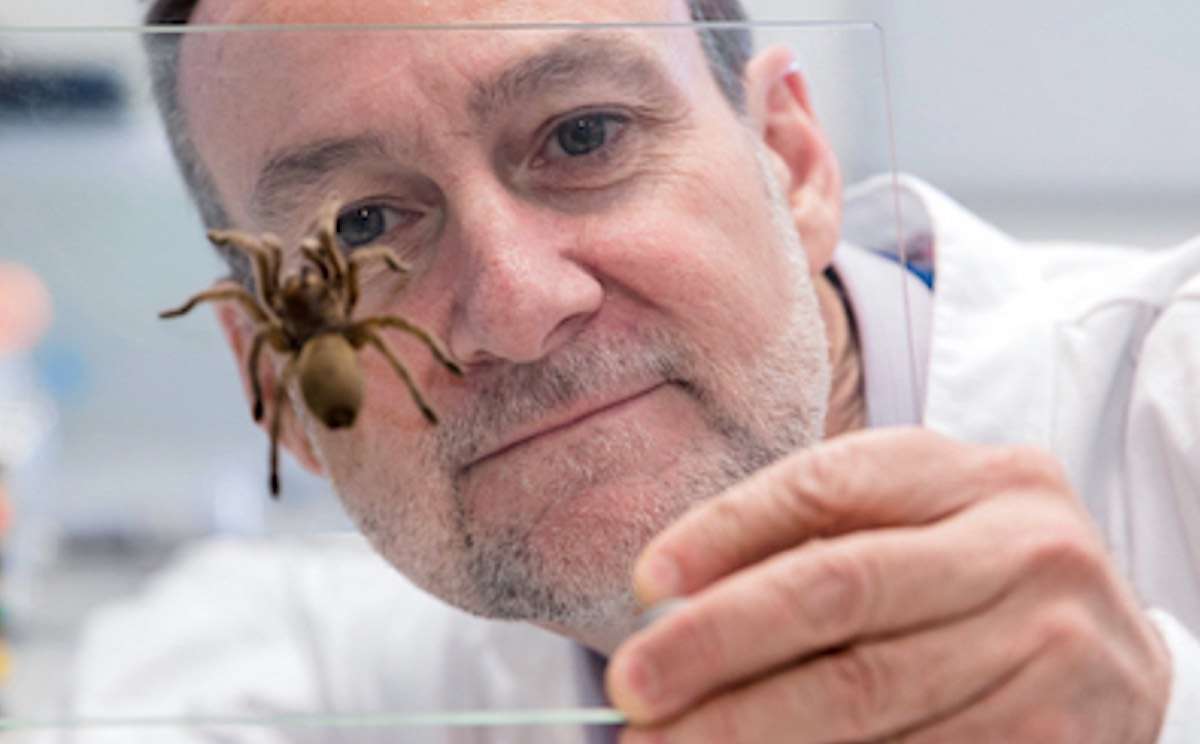After Covid and Cancer, Couple Finally Gets to Be Married - Thanks to Speedy Robotic Surgery
After Covid and Cancer, this couple finally gets married, thanks to an innovative robotic surgery performed at The Christie cancer centre.

Australian researchers discovered a potentially life-saving treatment for heart attacks inside a very unlikely source–the venom of one of the world's deadliest spiders.
A drug candidate developed from a molecule found in the venom of the Fraser Island (K'gari) funnel web spider can prevent damage caused by a heart attack, as well as extend the life of donor hearts for organ transplants.
The discovery was made by a team led by Professor Peter Macdonald from the Victor Chang Cardiac Research Institute in Australia and colleagues at The University of Queensland.
Macdonald said this incredible result had been decades in the making:
"This will not only help the hundreds of thousands of people who have a heart attack every year, it could also increase the number and quality of donor hearts, which will give hope to those waiting on the transplant list."
Dr Palpant, from UQ's Institute for Molecular Bioscience (IMB), said the drug candidate worked by stopping a ‘death signal' sent from the heart in the wake of an attack.
"After a heart attack, blood flow to the heart is reduced, resulting in a lack of oxygen to heart muscle. The lack of oxygen causes the cell environment to become acidic, which combine to send a message for heart cells to die."
"Despite decades of research, no one has been able to develop a drug that stops this death signal in heart cells, which is one of the reasons why heart disease continues to be the leading cause of death in the world."
Dr. Palpant tested the drug candidate, a protein called Hi1a, using beating human heart cells exposed to heart attack stresses to see if the drug improved their survival.
"The Hi1a protein from spider venom blocks acid-sensing ion channels in the heart, so the death message is blocked, cell death is reduced, and we see improved heart cell survival."
There are currently no drugs in clinical use that prevent the damage caused by heart attacks.
"The survival of heart cells is vital in heart transplants—treating hearts with Hi1a and reducing cell death will increase how far the heart can be transported and improve the likelihood of a successful transplant," said Macdonald.
"Usually, if the donor heart has stopped beating for more than 30 minutes before retrieval, the heart can't be used – even if we can buy an extra 10 minutes, that could make the difference between someone having a heart and someone missing out. For people who are literally on death's door, this could be life-changing."
The small protein in the venom of this spider was shown to markedly improve recovery from stroke, "amazingly reducing damage to the brain even when it is given up to eight hours after stroke onset," said UQ Professor Glenn King.
"For heart attack victims, our vision for the future is that Hi1a could be administered by first responders in the ambulance, which would really change the health outcomes of heart disease."
This would particularly important in rural and remote areas where patients are far from hospitals—when every second counts.
This could also allow donor hearts to be transported over longer distances and therefore increasing the network of available donors and recipients.
Dr. Sarah Scheuer says their research, published in the journal Circulation, initially just looked just at the effect of venom but moved down a whole new path of discovery when they identified a specific pathway that played a key role in damaging the heart tissue after oxygen loss.
"We found that an acid-sensing ion channel played a significant role in causing injury to the heart. By blocking that channel, we were able to prevent some of the injury that usually occurs."
The protein has been tested in human heart cells, and the team is aiming for human clinical trials, for both stroke and heart disease, to begin within two to three years, possibly leading to a new way of reversing the damage from heart attacks by using a potent, spider-derived antidote.
(Source: Victor Chang Cardiac Research Institute)
SHARE the Healing Heart News With Friends on Social Media…
Be the first to comment